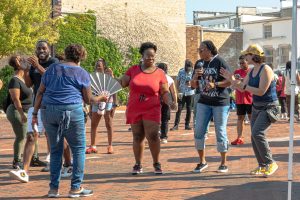Child abusers studied
January 18, 1991
If you think college can be difficult, try studying one of the problems with today’s society—child abuse.
While treatments for perpetrators abound and there’s an international trend toward prevention, predicting who might abuse children sexually is an arena of unanswered questions.
Practitioners could help abusers if the causes were more understood. An internationally-known specialist of domestic violence who makes his home at NIU hopes to change this.
NIU psychology professor Joel Milner, who has written or conducted more than 80 empirical studies, chapters and books, was awarded a $500,000 grant to study the characteristics of those who abuse children sexually.
Work began Sept. 1, 1990, when Milner got the grant from the antisocial and violent behavior branch of the National Institute of Health.
He will attempt to develop a screening test for child sex-abusers. “If these types (of abusers) can be screened is a question that needs to be answered for the field,” Milner said.
Milner already developed a screening test for physical child abusers which the US Air Force uses.
Most of the grant goes for salaries of staff working under Milner’s direction at various clinics across the nation. Thousands of abusers in Baltimore, Boston and Oklahoma will be studied objectively over the next three years for his study, “Description and Prediction of Intrafamily Sexual Child Abuse.”
Milner advises practitioners to “go back and do their homework” when focusing on treatment and prevention, rather than the causes of sexual child abuse.
“We need to know what it is we’re treating,” he adamantly said. “There’s no complete model of why a person assaults a kid. We don’t understand the causes. The best bet is after treatment they’ll do it again.”
In addition to working on grant-funded studies and teaching graduate students, Milner coordinates NIU’s Family Violence Research Program, one of few that focus solely on research.
The program is not a “center” because it would “cut into basic research” by needing grants and relying on state money.
“We can write grants when appropriate,” he said. “I’d rather be guided by research than administrative pressure. Being a program and not a ‘center’ allows for more control to do the logical next study.”
Four other NIU professors make up the loose-knit group that studies child abusers. “We’re a complementary group of people interested in the physiological development of a cognitive model for perpetrators,” he said.
He estimated 90 percent of all research is done in universities. Research is a “charmed” area that allows him to advance the field and give current knowledge to his students.
Milner became interested in researching domestic violence more than 10 years ago when he ran a biochemical laboratory for animal research.






